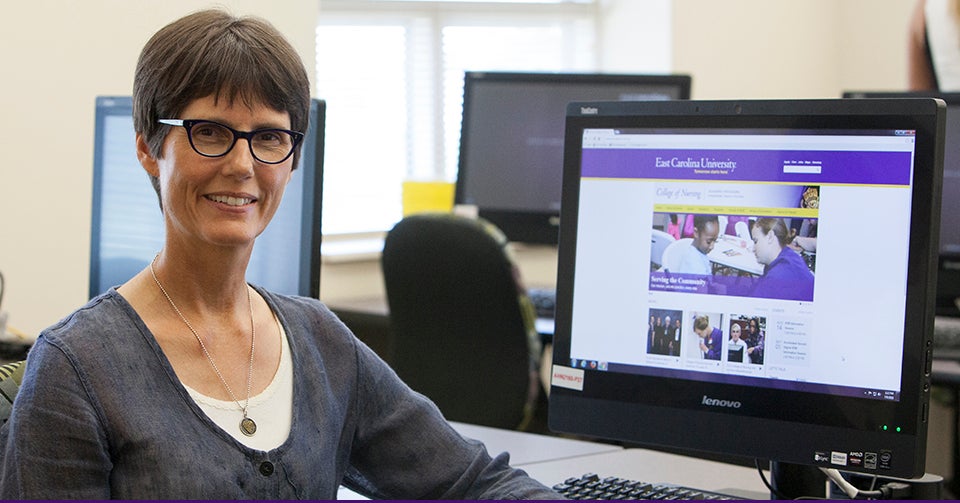A COURSE IN CARING
Nursing course informs international audience about science of care
The East Carolina University College of Nursing’s first Massive Open Online Course, or MOOC, attracted a global audience of more than 700 to learn about the science behind caring.
Drawing primarily nursing professionals, the course enrollment included students from Australia, the South Pacific, Southeast Asia, Western Europe, South America, Africa and the Middle East. Two Iranian university educators attempted to take the course but were blocked due to U.S. trade sanctions. Course organizers are working with ECU’s Office of Research Integrity and Compliance to request permission to teach them the course through email.
Using reflective journaling, YouTube videos and online discussion boards as their primary teaching strategies, course developers anticipated possible language barriers. Participants were encouraged to use Google Translate as well as digital art to keep the dialogue going on the message boards. By the course’s end, there were more than 2,000 discussion board postings.
“It’s been a magical experience to have so many people talk about the simple concept of caring and what it means to care across varied disciplines, languages, and cultures,” said Kathleen Sitzman, professor of nursing at ECU and lead instructor for the MOOC.
The course provided tools to help professionals implement “caring science,” a practice that is meant to support a healthy life through the use of intentional caring toward self and others. In a clinical setting, actions based in caring science include mindfully connecting with patients on a human level and not just seeing them as a “case,” being open to and supportive of patients’ expression of feelings, and actively cultivating compassion and loving kindness in daily work activities. The course also explored the idea of mindfulness practice, in which a person focuses on what is happening right now rather than what has been or may be.
These practices have been shown to increase positive patient outcomes, Sitzman said.
“Patients tend to perceive the quality of care and of the contact they engaged in as more positive when interacting with people who practice caring science,” Sitzman said. “There is also evidence that it increases employee satisfaction and retention as well as patient satisfaction.”
Sitzman’s motivation for offering a MOOC was to make the course accessible to anyone, anywhere. Aside from nursing, enrollees work in health care administration, personal training, social work, teaching, sales, mental health, engineering, mediation and hospitality.
For more than 20 years, Sitzman has worked with Jean Watson, founder of the Watson Caring Science Institute and dean emerita of the University of Colorado Denver College of Nursing. They collaborate to develop knowledge about engaged professional caring, and conveying and sustaining caring in online classrooms.
Sitzman’s 2014 book, co-authored with Watson, shared its name with the online course – “Caring Science, Mindful Practice” – and was required reading for the MOOC students. The book’s publisher is currently translating the title into Chinese.
Held June 8 to July 6, the course was presented in partnership with the Watson Institute and Utah’s Weber State University.
Sitzman plans to offer “Caring Science, Mindful Practice,” again later this year. Visit www.canvas.net or contact sitzmank@ecu.edu for more information about the course.
